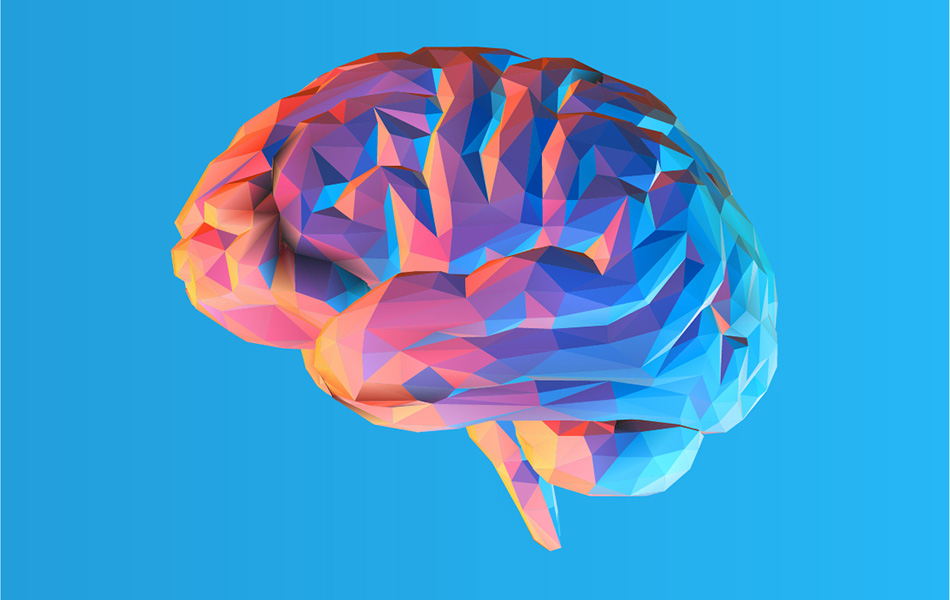Blog Post
Original Article Link:
https://www.truthaboutweight.global/global/en/science/your-brain-is-the-mastermind-behind-your-weight.html
Your brain is the mastermind behind your weight
Many people believe that there’s a simple explanation for why they live with obesity – they eat more than they need. But in reality, lifestyle is just one of the many causes that makes our bodies want to pile on – and keep – the extra pounds. Mads Tang-Christensen, Head of Obesity Research at Novo Nordisk, explains why some of the important causes leading to obesity are beyond our control – and what we can do about it.

Today, more people than ever live with obesity. Many are struggling to lose weight. And those who succeed often find that their weight creeps back up to where it was before within a few weeks – despite being active and counting calories.
To understand what makes it hard to lose excess weight and keep it off, we need to turn to medical science. Research keeps showing that obesity is not a personality flaw. In fact, it’s a complex metabolic disease. And as with any disease, there’s only so much that we can do with lifestyle change alone, says Mads Tang-Christensen.
A double expert
When it comes to dealing with excess weight, Mads Tang-Christensen is a double expert. As Corporate Vice President of Obesity Research at Novo Nordisk, he and his team have been doing research in the field for almost two decades. And he lives with obesity, too. So, not only does he want to make scientific advances, he also wants more people to better understand just how complex obesity is.
“While our environment has changed dramatically, our genetic preference for energy-rich food has largely remained the same.”
-Mads Tang-Christensen, Corporate Vice President of Obesity Research, Novo Nordisk
Living with obesity can affect many aspects of a person’s life, health and wellbeing. More and more people around the world are living with excess weight, but only a fraction of them are currently receiving treatment. According to Mads Tang-Christensen, this is because the causes of obesity are still poorly understood and advice is often oversimplified to ‘eat less and move more’.
“It can seem fairly straightforward to explain – if we consume more calories than we need, we gain weight. But the problem is actually much more complex. It seems our bodies are hard-wired to hang on to those extra calories, probably because for thousands of years, it was a basic survival mechanism”.
Stone Age brain in a modern world
In the Stone Age – 50,000 years ago – sources of food were unreliable, with times of plenty and times of famine. Our ancestors were more likely to survive if their bodies were good at storing energy as fat tissue during times of plenty. That’s why their brains evolved to look for tasty and energy-rich food that the body could easily store as fat tissue.
Today we are surrounded by lots of tasty food and drink that we have easy access to. We are also less physically active compared to our Stone Age ancestors. But while our environment has changed dramatically, our genetic preference for energy-rich food has largely remained the same.
Read More: The weight of the modern world: How our environment affects our health
“When you combine a natural tendency to store calories as fat with an environment that makes it easy to over-consume calories, it is not surprising that increasing numbers of people around the world are living with excess weight,” says Mads Tang-Christensen. This is one of the reasons behind the mismatch between our genes and our environment, he says.
The body has ways to stop weight loss
Another challenge when it comes to managing obesity is that our bodies actively protect us from weight loss. But while it was effective at keeping our ancestors alive, nowadays it makes it hard to lose weight and keep it off in the long run.
“It seems our bodies are hard-wired to hang on to extra calories, probably because for thousands of years it was a basic survival mechanism.”
-Mads Tang-Christensen, Corporate Vice President of Obesity Research, Novo Nordisk
Mads Tang-Christensen explains that the body activates the protection mechanism when it senses weight loss. It makes people feel more hungry and less satisfied after a meal, which may lead them to eat more. It also makes their bodies use less energy.
“This is why people often regain lost weight after a few weeks, even without increasing their calorie intake. In fact, in some cases, a person can put the weight back on even while consuming fewer calories than before,” says Mads Tang-Christensen.
Obesity is more than you see
Mads Tang-Christensen adds that a lack of understanding about obesity has led to unhelpful and hurtful myths.
“If we are going to address the problem of obesity across the population, we must realise that this is a chronic disease that we need to treat,” he says.
“That’s why it’s not fair to say that obesity is a personal failing. The truth is that weight management has many contributing factors, some of which are outside our conscious control. Raising awareness about the complexity of the problem will help reduce the stigma surrounding excess weight,” concludes Mads Tang-Christensen.
References
- Qi L & Cho YA. Gene-environment interaction and obesity. Nutr. Rev. 2008; 66(12):684–694.
- Morris R. Stranger in a strange land: an optimal-environments account of evolutionary mismatch. Synthese 2018; 1-26.
- Sumithran P & Proietto J. The defence of body weight: a physiological basis for weight regain after weight loss. Clinical Science 2013; 124:231-241.